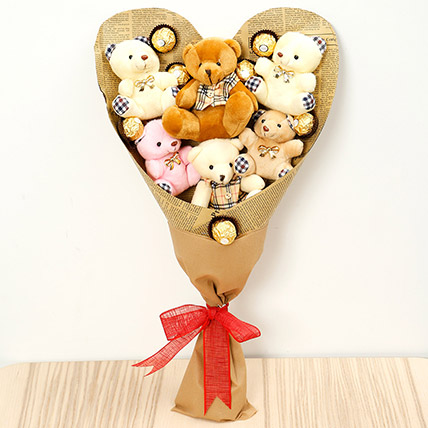About International Men’s Day
IMD or International Men’s Day is an annual event held every year on 19th November. It all began in the year 1992 on February by Thomas Oaster but the concept was initialized on 8th February 1991. This project was re-attempted in Trinidad & Tobago in the year 1999. The longest running IMD celebration was held in Malta where events have occurred since 7th February 1994.
Dr. Jerome Teelucksingh is the one who chose 19th November to honor his father’s birthday and also to celebrate the fact that back in 1989, Trinidad & Tobago’s soccer team had united the country with their tiresome efforts to qualify for the world cup- soccer. Dr. Jerome Teelucksingh promoted IMD as not a gender-specific day but also as a day when all the issues troubling the men and boys can be addressed. To quote him: “They are striving for gender equality and patiently attempt to remove the negative images and the stigma associated with men in our society”.
This IMD is supported by many individuals and groups in the Caribbean, Oceania, North America, Asia, Africa, and Europe. The prime objectives of IMD are called “The Six Pillars Of International Men’s Day” and they are:
- To promote male role models
- To celebrate the contribution that men make
- To focus on men’s health and wellbeing
- To highlight discrimination against men the inequalities that men and boys face
- To improve gender relations and promote gender equality
- To create a safer world for everyone
In a broader perspective, it can be said that IMD is an event that is all about promoting basic humanitarian values.
Brief History About IMD:
In the year 1968, an American Journalist named John P. Harris wrote an editorial in the Salina Journal projecting a lack of balance in the Soviet system. This later prompted the enunciation of International Women’s Day for recognizing the efforts of the female workers. However, no such initiative was taken up for the male counterparts. Harris cited this incident as a serious flaw in the Communist system. Men were also working hard and doing all that the government is asking them to do or whatever the women are requesting them to do but their hard work is not appreciated. Similar questions were put up by other media publication houses in the late 60’s. And after 3 decades, in the 90’s IMD was initiated.
Thomas Oaster directed the Missouri Center For Men’s Studies at the University of Missouri-Kansas City and he held a small event too. Responding positively to his invitation, many organizations in the USA, Australia, & Malta attended this event. So, Thomas Oaster successfully organized this event in 1993 & 1994 but in 1995 he saw poor attendance and thus stopped to plan anything further. Australia also stopped being enthusiastic about IMD but late revived the celebration from 19th November 2003. It was only Malta and its Maltese Association for Men's Rights that sustained as the only country to observe the event each year in February. Now as Malta was the only country that observed the February date of celebrating Men and their contribution to the society, the Maltese AMR Committee voted in 2009 to shift the date for IMD to 19th November.
Both International Men’s Day & International Women’s Day sound like “gender-focused” events, but they are not the mirror images of each other because they highlight the issues and challenges that are unique to both men and women separately. “The history of IMD primarily concerns celebrating issues that are considered unique to men's and boys experiences, along with the emphasis on positive role models "is deemed necessary in a social context which is often fascinated with images of males behaving badly... In highlighting positive male role models IMD attempts to show that males of all ages respond much more energetically to positive role models than they do to negative stereotyping."
Yearly Theme For International Men’s Day:
Over the years, IMD has adopted various themes and worked on them. For example, it was “peace” in 2002, “men’s health” in 2003, “healing & forgiveness” in 2007, etc. Some of the themes of this decade are mentioned below:
2011:
"Giving Boys The Best Possible Start In Life". On this year, people were asked to focus on 5 key challenges that boys across the world face like – health, education, family life, violence, and life choices. After asking, the local solutions were discussed so that the young boys could benefit from that.
2012:
“Helping Men and Boys Live Longer, Happier and Healthier Lives". This theme of 2012 highlighted facts & figures from the World Health Organization that showcased that every year over half a million people die from violence and 83% of them are men and boys. It also discussed that a similar proportion of the global burden of disease (ill-health, disability or early death) from violence is borne by boys and men and how to mitigate these challenges.
2013:
"Keeping Men and Boys safe". It is true that men and boys are touted to be the protectors of the family but they also need protection sometimes.
2014:
"Working Together For Men and Boys". This theme was taken up to encourage greater cooperation in talking a wide range of issues that affect men and boys lie short life expectancy, high suicide rate, etc.
2015:
"Working To Expand Reproductive Options for Men". Things like family planning, men's limited reproductive choices, sexual health, and safe sexual practices were talked at length. And the prime question that was put forward was – how we might increase a man's freedom to choose parenthood through cultural, legal, technological, and educational avenues?
2016:
"Stop Male Suicide". In every country in the world except China, the rate of suicide among men are higher than that of women. So, this issue was discussed and initiatives were thought to tackle the problems faced by men.
2017:
"Celebrating Men And Boys In All Their Diversity". This theme was announced by Global & Regional Coordinators and the emphasis was on “a call to action” for all individuals, institutions, & organizations to revolutionize the manner in which they design and deliver resources and support services which speak to the unique needs and issues of men and boys.
2018:
"Positive Male Role Models". The theme of this year is quite interesting too as that focuses on giving boys and men some role models to look up to & follow.










